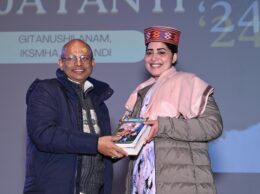University of Dundee’s researchers has made an important discovery that helps in explaining why South Asian type 2 diabetes patients are diagnosed at a younger age than Europeans and subsequently experience poorer outcomes. Diabetes is a complex multifactorial disease with important differences across populations but the majority of knowledge surrounding diabetes has been accumulated from studying white populations with Western European ancestry.
South Asian Indians experience diabetes at a younger age than Europeans, which is associated with earlier mortality. Their risk for microvascular complications, such as retinopathy and neuropathy, is also higher.
The researchers, led by Professor Colin Palmer from Dundee’s School of Medicine and Dr. Mohan’s Diabetes Specialities Centres, the largest clinical network of diabetes care in India, have shown a genetic basis for the significant differences in age at diagnosis of type 2 diabetes for the first time. They identified two genetic variants associated with the age of diagnosis that are much more common in South Indian populations than in patients of European ancestry. Understanding these ethnicity-specific genetic factors is hoped to enable better clinical management.
Dr Sundararajan Srinivasan, from the School of Medicine, said, “Our findings highlight the ethnic differences in the genetic architecture underpinning type 2 diabetes. We hope that further study of the genetic variants identified in this study will one day lead to improved treatments and outcomes for patients of South Indian descent. There is a relative paucity of population genetic studies in non-European individuals and therefore studies that include diverse ancestral groups are needed to understand the genetic architecture underpinning type 2 diabetes.
He further adds, “We tested the hypothesis that there are differences in the genetic heritability of age at diagnosis of type 2 diabetes in the South Indian and European populations. Additionally, we examined whether the genome-wide polygenic risk scores of age at diagnosis of type 2 diabetes can be transferrable between different ancestries or not. The findings highlight both the disparity in heritability estimates of age at diagnosis and explain the polygenic variation in South Indians. The genome-wide polygenic risk score derived from this cohort can be useful for further population-specific studies in South Asians.”
The same research is published in the journal Diabetes Care and was carried out as part of the INSPIRED research project, which is funded by the National Institute for Health and Care Research. INSPIRED is a £7 million Dundee-led project that seeks to improve diabetes outcomes in India by working to better understand who gets diabetes, how it progresses, why some people respond better than others to treatments, and why some patients develop complications. The project sees Dundee’s world-leading expertise in the use of medical records to deliver improved care in diabetes ‘twinned’ with the large patient data set (covering over 450,000 Indian diabetic patients) collected by Dr Mohan’s Diabetes Specialities Centres.








